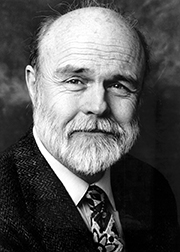Using Case Studies to Teach Science
Dr. Clyde Freeman Herreid
University at Buffalo/SUNY, National Center for Case Study Teaching in Science
Friday, April 1st
8:30am-5:00pm
Teaching, Learning, & Professional Development Center Room 151
This workshop is offered through A collaboration between Dr. Courtney Meyers' (Agricultural Education and Communication) USDA Higher Education Challenge Grant: Making a Case for Agriculture: Developing a Framework for Teaching Issues Communication in Agricultural Science and the TLPDC.
To register for this session, please visit www.events.tlpd.ttu.edu and search "case studies."
Session Information:
Case Studies have been used to teach students in law and business schools for over a hundred years. These cases are stories with an educational message. Case study instruction has been used in medicine under the terminology of Problem Based Learning where each patient is a case to be diagnosed and treated. The value of the case approach in the classroom is that it puts the subject matter in context rather than presenting the material as a series of isolated facts and abstract principles. When information is put into story form it is easier to learn and remember. It has particular appeal for students put off by science taught in the traditional lecture style.
The purpose of the Case Study Workshop is to teach faculty about the different types of case study methods of instruction along with their strengths and weaknesses, how to teach with case studies, and how to write cases and teaching notes so that other individuals can use them This is a highly interactive workshop where participants experience case study teaching from the student's viewpoint first, then they will write their own cases which they can take home and use in their classes. An independent survey of several hundred faculty who have attended our case study workshops indicates that virtually all instructors report higher student satisfaction with this method of presentation compared to traditional lecture method, as well as greater student attendance, and higher grades.
Note: all faculty intending to participate in this workshop will need to read the case study on the website entitled: "Torn at the Genes”
About Dr. Herreid

Dr. Herreid holds the State University of New York's title of Distinguished Teaching Professor. He was trained as a biologist at Johns Hopkins University and Pennsylvania State University, and he has held positions at the University of Alaska, Duke University and the University of Nairobi. He has won every major teaching award at the University at Buffalo, and he established the university's Teaching Assistant Training Program. He founded the National Center for Case Study Teaching in Science 20 years ago. The National Science Foundation and The Pew Charitable Trusts have supported the Center for many years. Its web site is located at http://ublib.buffalo.edu/libraries/projects/cases/case.html where there are over 550 peer-reviewed cases published in all science disciplines including engineering and math. Dr. Herreid writes a regular column on case teaching in the Journal of College Science Teaching. He has written and edited three books on case studies by the National Science Teachers Association: “Start with a Story,” is considered a classic in case study teaching. This was followed by “Science Stories: Using Case Studies to Teach Critical Thinking” and “Science Stories You Can Count On: Case Studies with Quantitative Reasoning in Biology.”
Teaching, Learning, & Professional Development Center
-
Address
University Library Building, Room 136, Mail Stop 2044, Lubbock, TX 79409-2004 -
Phone
806.742.0133 -
Email
tlpdc@ttu.edu
